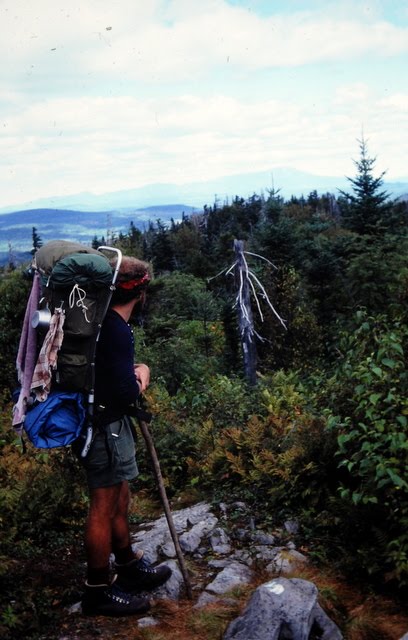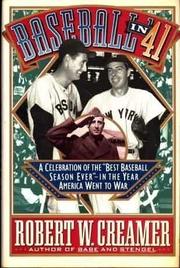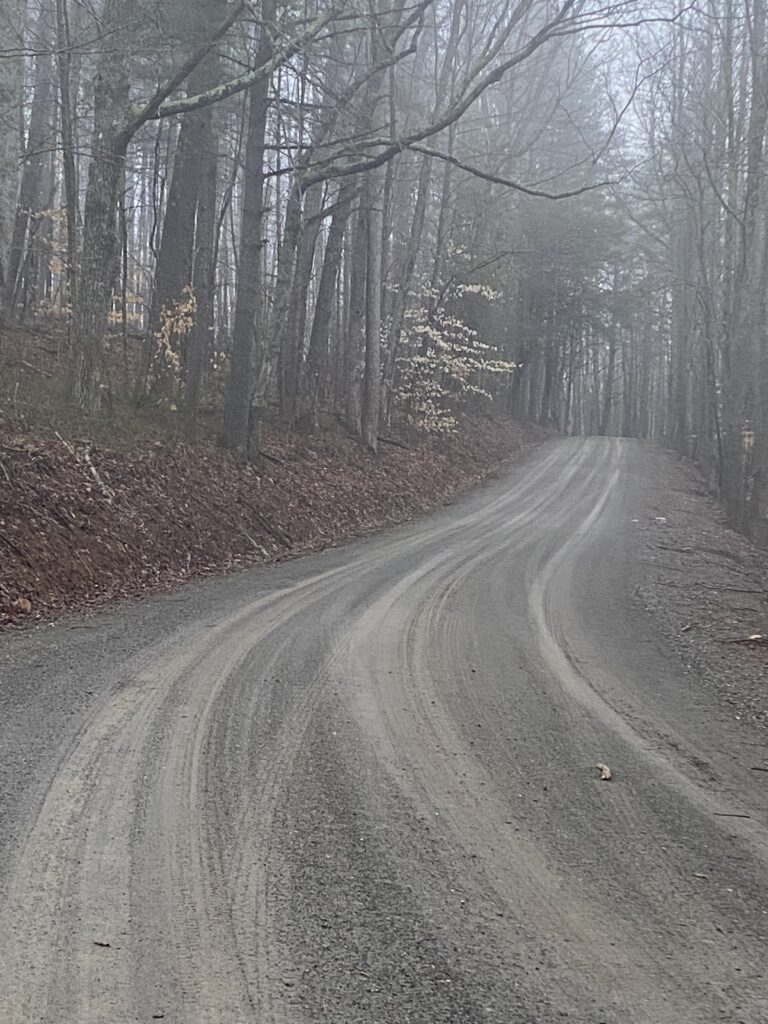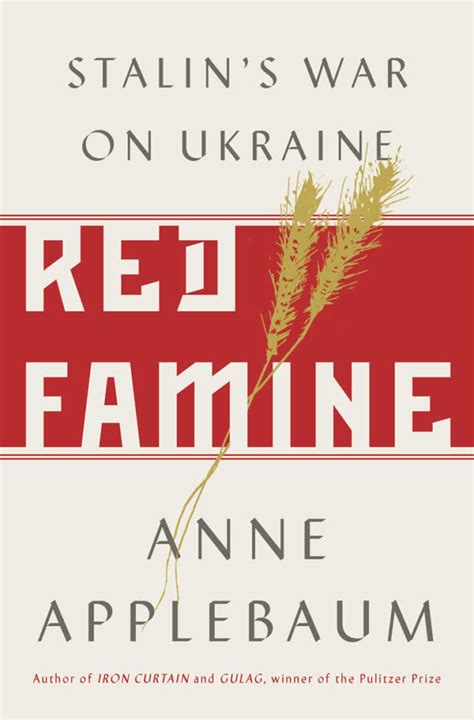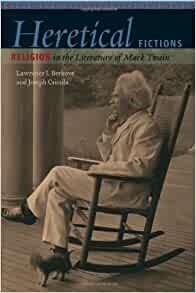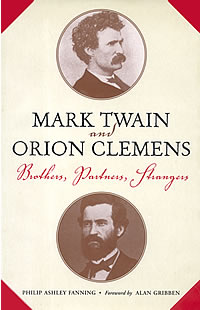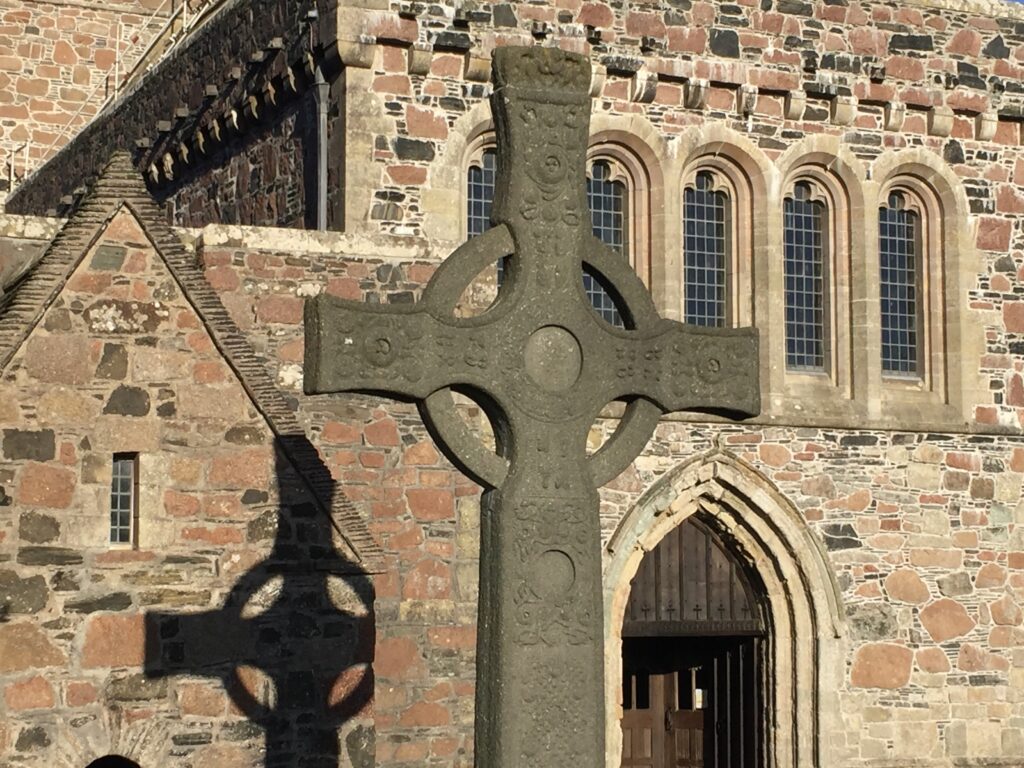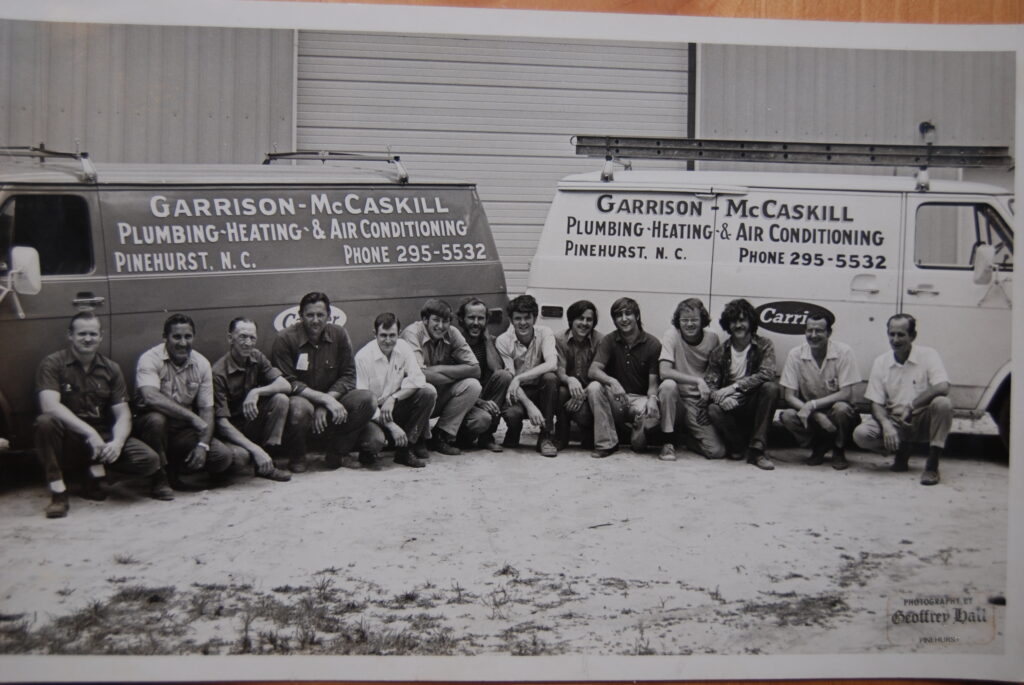
A butt-naked boy ran through the crowd. This is the first thing I see as I step into the country, immediately after having my passport stamped. And he wasn’t just a boy, certainly no toddler. He was at least five feet tall and probably 11 or 12 years old. I do not know what was up with him. Thankfully I never saw another kid his age running around in his birthday suit, but he served as a shocking reminder (along with having to learn a new currency and the words for rice and noodles) that I was in another country. Cambodia!
I’d wanted to see Cambodia since a teenager. As a ham radio operator, I remember reading an article in QST (or maybe it was CQ, both amateur radio magazines in the early 1970s) of a trip made to American ham operator to Cambodia. Before the Khmer Rouge, he met with a few of the operators in the country. The article had photos of the country’s temples. It all looked exotic. A few years later, as the war in Southeast Asia intensified and then came to a horrific conclusion in Cambodia, I wondered what happened to the few amateur radio operators in the country. I’d also heard of some of the temples being destroyed. Now is my chance to find the answer to at least one of my questions.
I was catching the train to the border at Bangkok’s Makkasan Station at 6:20 AM. The train starts at the downtown station at 5:50 AM, but since my hotel was closer to Makkasan, I decided sleep an extra half-hour. But for a while this morning, I wondered if this had been a good idea. I’d asked for a 4:30 AM wake-up call (it came at 5:15, as I was leaving my room).
Leaving the hotel, I venture out into the darkness and (as the Skyway isn’t running yet) meet the cabthe hotel had called. The driver spoke little English. I showed him where I wanted to go. He agreed and suggested what I assumed was a fair price. I tossed by backpacks into the backseat and climbed in.
Two blocks later, something strange happened. A policeman stood in the middle of the road with a blue lighted pointer, indicating for the cab to pull over to the curb. Two other policemen with flashlights shining came over and asked the driver questions as they shined lights into the back of the cab and onto my face and bags. They opened the back door. Pointing at me, he asked in rough English, “where?” Assuming this was where I was heading, I said Cambodia. He looked at me for a moment then, gesturing as if he’s smoking, appeared to ask for cigarettes. I shook my head and said ‘I do not smoke. “Okay,” he said, and waved us on. I had the feeling these Thai policemen wanted to shake me down for a smoke!

My next hurdle was getting to the right station. It turns out there are two Makkasan stations, one for the railroad and one a high-speed rail line only runs to the airport. It was this station that the cab driver insisted must be mine. Having been to the train station to purchase my ticket, I knew it was not the right place. Finally, a Thai man who heard me talking came over and asked in English where I was going. He then gave directions to the cab driver. There were only two dozen or so passengers at Makkasan station, so the cab drivers confusion was justified.
I purchased my ticket for the border a few days earlier. It cost 48 bahts or about $ 1.50. The only option is a non-air-conditioned third-class train for the five-hour trip. At least, early in the morning, the air was damp but cool.
On the station platform, I spot several old steam engines in a yard across the tracks. I walk over to check them out and to see if I could catch photographs. A guard stops me, saying “No photos.” I have no idea why, but it isn’t bright enough yet to get a good photo. On the train, I snap a few photos of the old engines, but with the low light, the photos don’t turn out well. After walking around a bit with my pack, I sat down on the platform to wait for the train. It was still 15 minutes away.

While waiting, a Thai woman came up and began to talk to me. Her name is Niranya. She’s a travel agent whose customers are primarily Indian, so she speaks to them in English. She was heading back to her family home near the Cambodian border where she had to attend to some business. We talked until the train arrived, then sat by each other on the train. She was getting off the stop before me. Traveling with her is enlightening. Having grown up on a farm, she shares about the various crops grown along with showing where fields are being converted from rice and other food crops to fast growing trees used for pulp. These trees harmed the land because they used so much water. Much of the land in eastern Thailand is dependent on the rainy season for water as there is not enough for irrigation. Such trees, she complain, steals water which could be used to grow rice. But the high demand tempts farmers to plant such trees that require less work than keeping up rice paddies. Another crop that is in demand is tapioca, which also tends to rob the soil of nutrients.

I’m amazed at the number of rail lines running into Bangkok from the east. At places, as many as eight set of tracks parallel each other as they run into the city. As it was early morning, the trains coming in were all packed with passengers.
Our train, heading the opposite direction, slowly filled. This was a slow train and we stopped at every station, where an agent would step out dressed like a general or war hero, to meet us. We also stopped at other places requested by passengers. At one of these “nowhere places,” a woman stepped off the train and stepped into the jungle, disappearing as she headed to her home as the train moved on. After a while, we were well into the country. After passing Chachoengsao Junction and Khlong Sipkao Junction, where lines split off heading north and south, we were on a single-track line running through a flat countryside, occasionally pulling over to sidings to wait for east bound trains to pass.
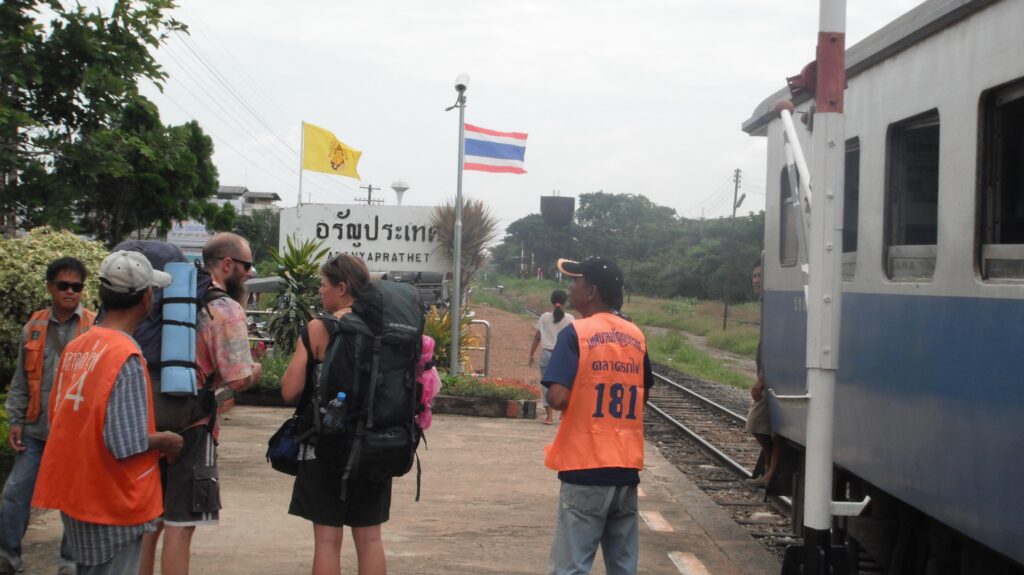
As the sun rose higher in the sky, the car became warm, and everyone began to sleep. There was little movement, only the occasional seller passing by with drinks and snacks. At one stop, a bunch of women boarded at one town, coming from the market. They’d taken an earlier train into town and were heading back with baskets of produce and stables like cooking oil. The train was so crowded that there weren’t enough places for people to sit. I offered my seat to a couple of the older women, thinking that standing a bit wouldn’t do me any harm. They refused, but my act of kindness caught the attention of one of the women, who looked to be in her 30s. She asked Niranya, whom she’d seen talking to me, if she was my wife. Of course, I didn’t know what had been said. Niranya laughed, and told her no, that we’d just met that morning while waiting on the train. The woman then asked Niranya if I was available! She said she told her that I was married. This led into a conversation about how Thai women seek out American and Western husbands as a way of escaping the hard life, especially smaller villages. I had certainly seen many Western men with Thai women, generally women that were half their age.
The women coming from the market only rode for about 30 minutes before getting off at a small village. Niranya got off Watthana Nakhon. By then, the train had mostly cleared except for those of us heading to the border. The train was mainly filled with tourist and Cambodians returning home, such as a man who sat across from us and had drank at least a six-pack of beer during the trip that ended around noon! He was coming back home after having surgery done on his nose in Bangkok. The train pulled into Aranyaprathet, at the end of the line, a little after noon, about 30 minutes late. As there are at most places, there were a host of tuk-tuk drivers wanting to take us to the border. The prices quoted was what I was expecting and soon I was whisked away toward the border, feeling like I was in a chariot race with each driver vying to get their passenger there first. The drivers also tried to encourage us to book rooms through them in Siem Reap (they all seemed to have a cousin or brother there), but I’d already had my reservations made.


The border crossing was hassle free (except for seeing more than I’d wanted to see). I had lunch (rice and ginger chicken) and then got on the bus for Siem Reap. The Cambodian countryside appears as flat as a pancake. The occasional hill seems out of place. These are called Phnom (as in Phnom Penh), which is named for the hill upon which it sits. I am surprised by the large sizes of the fields. The road is now modern (a few years ago, I heard this was a rode that would jar the fillings out of one’s teeth) and we moved along in air-conditioned comfort. We stopped once, for a bathroom break and to let the engine cool (while waiting the driver sprayed water on the overheated engine!). The bus needed more fuel and the driver pulled up to a garage looking place and they brought out two 5-gallon jerry cans and dumped them into the fuel tank. From the bus station was on the edge of Siem Reap and I hired a driver to take me to the Golden Banana, where I had reservations for three nights. After seeing the Cambodian countryside, the modern style of Siem Reap appears out of place. In the evening, I head into town and have red curry for dinner. Then, it’s off to bed. I plan to get up early to see the sunrise at Angkor Wat.

Other train adventures:
“The International (Butterworth, Malaysia to Bangkok)
The Jungle Train (Singapore to Kota Bharu, Malaysia)

